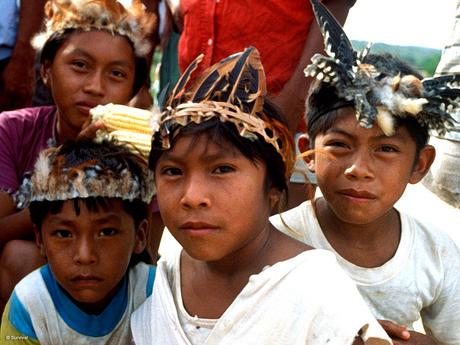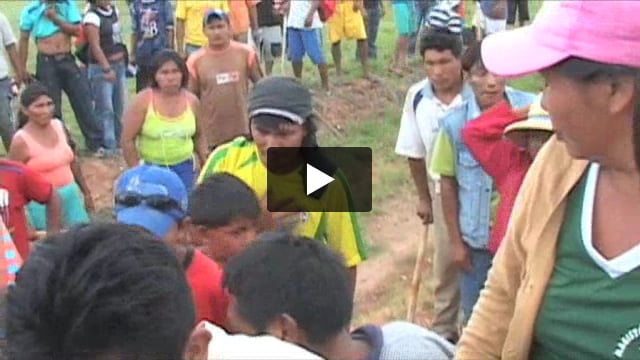Judge upholds Indian land rights - case adjourned
August 28, 2008
This page was last updated in 2008 and may contain language which is now outdated.
Yesterday in a packed Supreme Court in Brazil, a key judge voted to uphold the demarcation of the Indigenous territory Raposa-Serra do Sol. The case was adjourned at the request of another judge, and a final ruling is expected later this year.
Raposa-Serra do Sol is seen as a test case for Indian rights in Brazil. The government of the state of Roraima and a group of powerful farmers have petitioned the Supreme Court to overturn the legal recognition of the territory, which is home to the Makuxi, Wapixana, Ingarikó, Taurepang and Patamona tribes.
The Indians believe that if the recognition of their land is overturned, their way of life will be destroyed, and tribes all over Brazil could face similar attempts to reduce or annul their territories.
The farmers have waged a campaign of violence against the Indians of Raposa-Serra do Sol since it was demarcated in 2005.
Judge Carlos Ayres Britto emphasised in his decision that the Brazilian Constitution guarantees Indian land rights, and that the Indians of Raposa-Serra do Sol are the original occupants of the territory.
He also said that Indigenous territories like Raposa-Serra do Sol which border other countries are not incompatible with national security, as the military have claimed.
Brazil’s Supreme Court was packed with Indians and their supporters, who greeted Britto’s decision with delight.
For the first time ever, an Indian addressed the Supreme Court’s eleven judges. Indigenous lawyer Joênia Batista de Carvalho from the Wapixana tribe told the court, ‘I do this work for love, because my family and my people need it. I’m defending my own land, to which I intend to return after this time spent in the city.’
Batista de Carvalho works for the Indigenous Council of Roraima (CIR).
Brazil’s attorney general also spoke in favour of maintaining the demarcation of Raposa-Serra do Sol.



